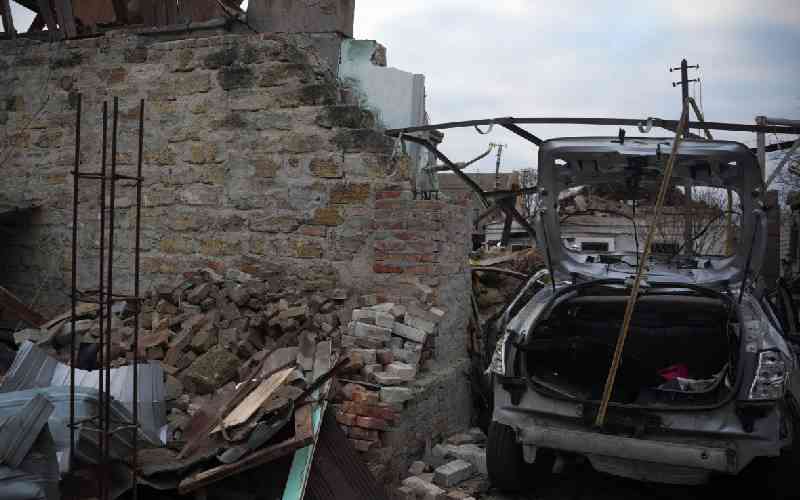×
The Standard e-Paper
Stay Informed, Even Offline

Russia on Sunday pummelled Ukraine with a "massive" aerial barrage, Ukrainian officials said, killing at least eight people and forcing power cuts with fears of a precarious winter to come.
Hundreds of missiles and drones streaked across Kyiv's skies as Russia's invasion dragged past its one thousandth day, leaving more than 20 people wounded as well as the dead and damaging the country's already beleaguered energy grid.







